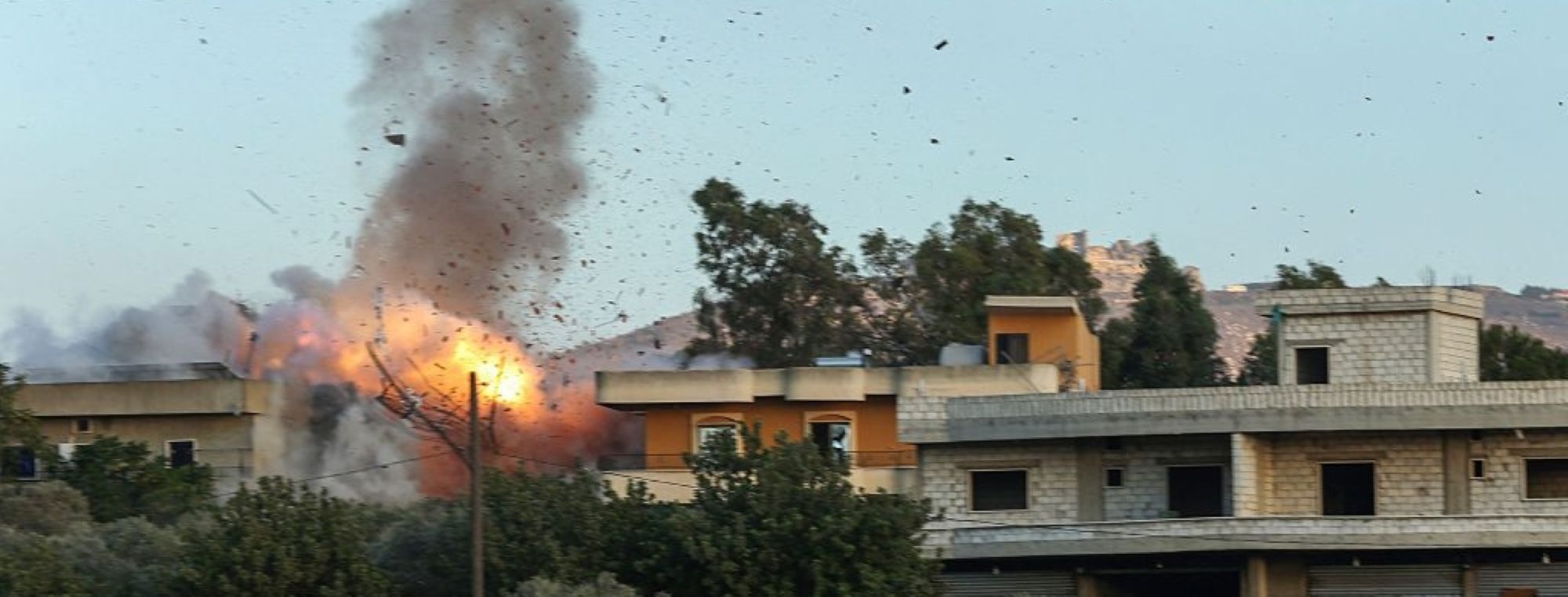One year since the Israeli military significantly escalated its attacks in Lebanon, victims of violations of international law are still awaiting justice and reparations, the Lebanese government has yet to grant the International Criminal Court (ICC) the jurisdiction to carry out investigations on its territory, and many residents of towns and villages in southern Lebanon are still unable to return to what remains of their homes, Amnesty International said today.
On 23 September 2024, one of the deadliest days of the conflict, Israeli forces launched a series of air strikes across Lebanon, calling the military operation “Northern Arrows.” That day, at least 558 people, including 50 children, were killed, and 1,800 others wounded, according to Lebanon’s Ministry of Health.
In the ensuing weeks and months, entire villages in Lebanon were reduced to rubble. Families fled under fire and have yet to return. Amnesty International documented how Israeli forces carried out unlawful attacks on residential buildings, killing and injuring civilians, and Israel’s extensive destruction in border villages in southern Lebanon. These attacks and actions must be investigated as war crimes.
Kristine Beckerle, Amnesty International’s Deputy Regional Director for the Middle East and North Africa, said:“A year since civilians in Lebanon began to pay a higher and higher price during the conflict, with unlawful and deadly attacks across the country and extensive destruction all along the border, victims of violations of international humanitarian law have yet to see any form of accountability or reparation.
“After the ceasefire, not only did the Israeli military prohibit people from dozens of villages from returning home but continued to damage and destroy civilian property without imperative military necessity. Every displaced family has the right to go home. Israel must immediately allow safe return and provide prompt, full, and adequate reparations to all victims of war crimes and violations of international humanitarian law. Reparations, including in the form of compensation, must extend beyond individuals to include local municipalities, schools, hospitals, and other civilian infrastructure for damage caused by unlawful conduct affecting their premises.
“Meanwhile, the Lebanese government must break the cycle of inaction and pursue justice for all victims and the suffering inflicted upon them. The government must urgently grant the ICC jurisdiction to investigate and prosecute crimes under the Rome Statute committed on Lebanese territory since October 2023, including by acceding to the Rome Statute. By failing to join the ICC, the Lebanese government is knowingly blocking a vital path towards international justice. Authorities must also pursue every available legal route to protect victims’ and communities’ right to reparations, including working with the United Nations to establish a registrar of damages.
“Lebanon must act swiftly to ensure victims have the accountability they deserve, while third states – especially the United States – must immediately suspend all arms transfers and other forms of military assistance to Israel due to the significant risk that these weapons could be used to commit or facilitate serious violations of international law.”
Background to the ongoing airstrikes on southern Lebanon
Fighting between Hezbollah and Israel escalated in October 2023. Since then, Amnesty International has reported on the fighting’s impact on civilians, including from the Israeli military’s use of white phosphorous, indiscriminate simultaneous mass explosions targeting electronic devices, attacks on journalists, health facilities, ambulances and paramedics, unlawful air strikes against civilians and civilian objects, and the extensive destruction of Lebanon’s border villages, as well as on Hezbollah’s repeated firing of unguided rockets into populated civilian areas in Israel. Amnesty International has called for conduct by both Israel and Hezbollah to be investigated as war crimes.
Despite a ceasefire deal coming into force on 27 November 2024, the Israeli military has continued to conduct air strikes in southern Lebanon, as well as in Beirut’s southern suburbs, targeting what they describe as Hezbollah military locations and personnel. Two days after the ceasefire announcement, the Israeli military prohibited residents from moving back to villages located south of a line that extended roughly parallel to Lebanon’s southern border but ranged from 3 to 11 km into Lebanese territory and said that “anyone who moves south of this line puts himself in danger”. At least 57 civilians were killed while trying to reach villages in southern Lebanon during the first 60 days of ceasefire, according to the UN Office of the High Commissioner for Human Rights (OHCHR). In 2025, residents of some of the border villages told Amnesty International that they and others had been unable to return home, including as their villages fell within the area that Israeli authorities had prohibited residents from moving back to and due to continued Israeli attacks. On 17 February 2025, the Israeli army spokesperson said that Israeli forces remained in a number of “strategic” locations inside Lebanon.






















